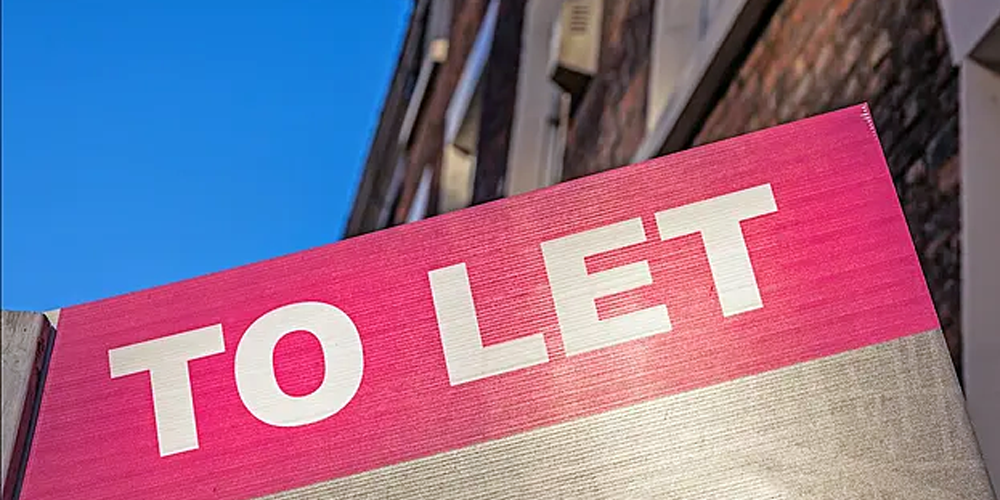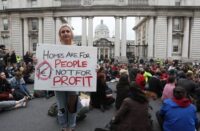First covered in The Irish Times in 2017, sex-for-rent is periodic news fodder and is a lasting, if not growing, feature of the rental market in Ireland. Predatory landlords advertise properties either specifying women tenants only or merely dismissing messages from men, and then as the prospective tenant arrives, they will offer discounted or no rent if the prospective renter will have sex with them on a regular basis.
It’s a system that preys on the desperate, and as the housing crisis deepens these landlords have an ever-growing pool of victims to pressure, bully, cajole and terrorise into agreeing to their terms. The National Women Council (NWCI) released a report on the prevalence of sex-for-rent last year and found its presence across the country. It is such a commonplace part of accommodation-seeking that international students now warn each other of it when hunting for accommodation. The Irish Council for International Students (ICOS) has, along with NWCI, called for legislation to protect those targeted by predatory landlords.
In 2022, a bill aimed at criminalising the behaviour stalled in the Oireachtas at committee stage, and two more bills fell when the Dail was dissolved ahead of the election last year. The legislation proposed to tackle sex-for-rent would be largely based on the Sexual Offences Act 2017. The long-awaited review of Part Four of this Act, Purchase of Sexual Services, was finally published on the 25th of March this year.
Hot on the heels of International Sex Workers’ Rights Day, 3rd March, it has been made clear that any sex-for-rent legislation will not be covered under part 4 of the Sexual Offenses Act, in order to reduce stigma. This stigma being the possibility that a sex-for-rent complainant could be identified as a “prostitute”. In other jurisdictions where women have been obligated to identify as a prostitute in sex-for-rent cases, it has been shown they simply prefer not to report. Arguably, though the word is used in our legislation, there is no requirement for anyone in receipt of payment or who is offered payment for sex acts to identify in any manner, nor does it specify the willingness or unwillingness of the offeree to entertain such offers. But the word prostitute is that stigmatised and that dehumanising that many women avoid it no matter the cost, yet it is how women in the sex industry are casually referred to in the media, in legislation and in the discussed review.
The review, while noting the success of the legislation in principle, and discussing some limitations re: enforcement, also states simply that “there is a low-level of reporting [of crimes to the Gardaí] by victims [of crime] in this sector” with little more to say on the topic. Regardless of one’s own opinion on the sale of sex, those who sell sex are more vulnerable to victimisation and greater exploitation and abuse due to the underground nature of the trade. Criminalisation and the associated stigma make the sale of sex circumstantially harmful for those involved in the area, and sometimes those who are meant to be offering protection to these women are the most dangerous.
In early March of this year, The Ditch reported that there have been 60 sexual misconduct complaints against the Gardaí within the last 3 years. 18 investigations ongoing, 3 cases forwarded to prosecutions, and 10 Gardaí currently suspended with pay while being investigated. As rape and sexual assault are accepted as under-reported crimes, with less than 10% of victims ever reporting, one must assume with crimes committed by Gardaí that the report rate must be lower again.
In the wake of the Morris and McCabe cases, a person could not be blamed for thinking that some reports may be unwillingly retracted or even lost before they are ever logged and this assumption allies itself with the finding from the 2022 report from University Limerick, I Must Be Some Person: Accounts from Street Sex Workers in Ireland.
This report found almost one in ten participants reported instances where Gardaí manipulated the street workers lack of knowledge of the law and their legal rights to intimidate them and that one in five reported experiences of being sexually exploited by the Gardaí. Participants said they had a deep mistrust of the Gardaí and said they were less inclined to report crimes due to this, including instances of rape.
For some these women an avoidance of reporting was a direct result of their own history of trauma inflicted by aggressive Garda tactics, their own exploitation by the Gardaí, reports of the same from other women, witnessing officers abusing their power as well as previous incidents of physical assault or rape that were dismissed or mishandled.
In abusive situations, shame, stigma and fear are used to force women into ever more difficult circumstances and it is hard to imagine that any piece of legislation is going to offer women any better when it springs from a system that relies on the same tactics. It is not possible to legislate women out of exploitation when that exploitation is inherent in the economic system. Sex work does not go away through legislating it out of existence and making sex-for-rent illegal will not prevent women being forced into predatory arrangements. True liberation can only be achieved by abolishing the conditions of exploitation at their root: the inequality essential to the capitalist system. We need a world where we don’t only dream of a safe, secure home, decent, paid and protected work, social protections, social inclusion and community, but one where we each not only have these, but also have a hand in building that system, in which every one of us has an equal share.






